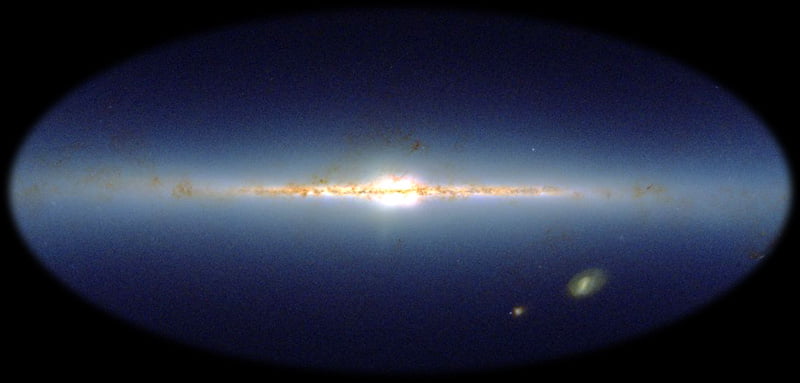The Australian Government has announced the results of the first round of ARC Future Fellowships, a new scheme designed to attract and retain scientists working in areas of critical national importance.
Two fellowships have been awarded to Dr Kenji Bekki and Dr Linqing Wen of the International Centre for Radio Astronomy Research. The fellowships were awarded for work that will ultimately contribute to the Square Kilometre Array international mega-science project and Australia’s pathfinder telescope, the ASKAP.
Dr Wen’s work relates to gravitational waves. These waves, first predicted by Einstein’s theory of relativity, are thought to be fluctuations in the curvature of space-time that propagate through the Universe as waves of gravitational radiation.
Dr Wen will develop new algorithms for processing radio astronomy data that will assist her gravitational wave research but also be vital in solving some of the computational and data flow challenges that face the SKA.
Dr Bekki is a computational astrophysicist working with high-resolution supercomputer models of the interaction of galaxies. In particular, he is an expert on the interaction of the Milky Way and the Magellanic Clouds and his work is aimed at developing a better understanding how these galaxies have affected each other over time and how they first formed in the early Universe.
”The Magellanic Clouds have long been used as the best astrophysical laboratory for studies of star formation and how the interstellar medium and galaxies evolve”, said Dr Bekki.
“So, if we have a better understanding of the Magellanic Clouds we are able to understand other galaxies like them located elsewhere in the Universe.”
For more information about the ARC Future fellowships visit www.arc.gov.au

Image Credit: 2MASS/J. Carpenter, T. H. Jarrett, & R. Hurt.
This infrared all-sky view, created by the 2MASS Survey, gives us a hint of what the Milky Way would look like if we could see it from the outside in an edge-on perspective. The image is dominated by the galaxy’s blazing central bulge and thin disk. The latter is pervaded by dark dusty nebulae. At lower right are the Milky Way’s two principal satellite galaxies, the Large and Small Magellanic Clouds.